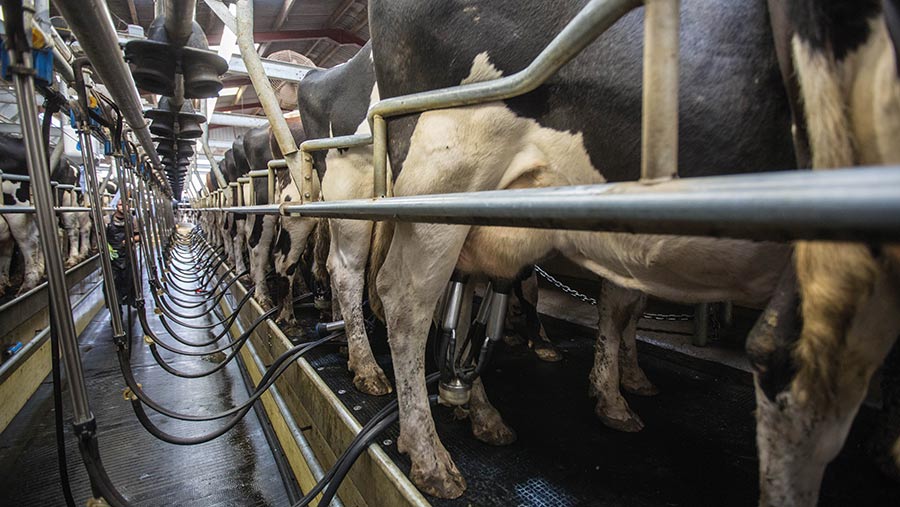Opinion: Animal welfare reflects a business’s culture
 © Tim Scrivener
© Tim Scrivener It’s been nearly a month since the BBC Panorama programme exposing cruelty on a dairy farm aired, and the shock is barely waning.
Most farmers were horrified by what they saw, agreed that it was totally unacceptable, and felt angry that the BBC seemed to be tarring them with the same brush as a small minority of animal abusers.
Some people tried to understand why such behaviour was able to happen in the first place and, as usual, the milk price was brought up as an answer.
If we received more money for our milk, welfare on farms would improve, with supermarkets to blame for the inadequate prices. I don’t buy into this.
See also: Opinion – call out cruelty to protect farming’s reputation
Milk prices have recently increased significantly, with the GDT at an eight-year high, but costs have risen with them.
Extra milk income is no guarantee of extra profit, and if we can’t farm with high standards of animal welfare in the market conditions, we shouldn’t be in business, full stop.
Of course we need a fair return for our product, but we shouldn’t use that to excuse unacceptable behaviour.
Supermarkets have also been at the forefront of driving welfare standards on farms, with their contracts demanding ever-increasing levels of monitoring and management of animal health.
Processors such as Arla are now cascading these requirements down to all farms because, whether we like it or not, it is what consumers expect.
If we have any chance of facing down our accusers, we have to be able to openly show what action we are taking to maintain or improve standards.
Others have suggested that the owner of the farm has been made a whipping boy for the actions of a couple of “bad egg” staff members and general negative perception of the industry.
They say terminating his Red Tractor membership was unduly harsh, giving him no opportunity to rectify the problems.
His milk buyer, Freshways, which views membership as essential, issued a statement three days after Panorama aired saying he had not supplied it with any milk following the programme.
Removing a farm’s income abruptly will do nothing to help the welfare of the cows left behind, but ultimately the buck must stop somewhere and leadership starts at the top.
A love of animals and an ability to treat them with kindness and respect is an essential prerequisite for working on a dairy farm.
As farms consolidate and become larger, leadership is increasingly important. It isn’t possible for farm owners to supervise everything that happens on the ground, but we must find ways to ensure that standards are consistently achieved.
A strongly defined business culture is commonplace in most large organisations, but agriculture, perhaps because of the large proportion of family businesses, has some catching up to do.
Welfare should be part of the cultural bedrock of any livestock farm, and all team members need to buy into it. A love of animals and an ability to treat them with kindness and respect is an essential prerequisite for working on a dairy farm.
When this is linked with technical KPIs for the business, it can be incredibly rewarding for staff to see the results of their efforts in healthier animals and improved productivity.
The best way to improve animal welfare on farms is not with an extra 1p/litre on the milk price, but with investment in leadership and workplace culture training.
Supermarkets and processors would be well-placed to support this, as it could have a hugely positive impact on both people and animals.

